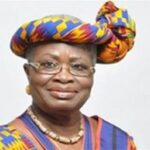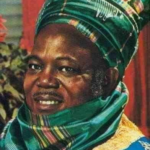RIFA’AH RAFI AL-TAHTAWI
- 4 Min Read
Rifa’ Ah Rafi Al-Tahtawi (1801-73), the first intellectual reformer of modern Egypt and father of modern Arabic literature, was born at Tahta, Upper Egypt in 1801.
For eight years he studied under the best teachers at al-Azhar. His family suffered great financial loss when Mohammed Ali (r.1805-48) confiscated his father’s monopolies, and his mother had to sell her jewellery and private property to enable him finish his education. On completion of his course, Rifa’ah taught for two years at al-Azhar and was then given a post as Imam and preacher to one of the army regiments by Mohammed Ali.
In 1826 he was chosen to accompany an education mission to France as its Imam. He had his misgivings about going to France, but, once there, he settled down to study the ideas of the new world. He learnt mathematics, geometry, physics, geography and French and read Greek philosophy, ancient mythology, history Voltaire, Rousseau, Montesquieu and Racine.
While still in France he began to translate into Arabic several works on history, geography, mineralogy, geometry, astronomy, law and hygiene. He also recorded his impressions and experiences in France in a book which reached Egypt before him. It was the first book on Europe to be presented by an Arab to the Arab world. It naturally aroused great interest in Egypt, and through it he established his reputation before his return.
After six years’ absence, Rifa’ah returned to Egypt in 1831, and was appointed chief translator in the School of Medicine, and editor of the official journal, “information Egyptiennes”. Two years later he was transferred to the artillery school at Tura. In 1836 Rifa’ah was appointed to serve as a Council which reviewed the educational problems of the country and made recommendations to the Pasha for educational reforms.
The School of Languages was opened in 1836; and when Rifa’ah became its director in January, 1837, he was the first native Egyptian to head such an institution. Education in Egypt at this time was given a military bias.
Rifa’ah drew upon his knowledge of Western education to work out a curriculum which would widen the intellectual outlook of his students. The best students were drafted into the Translation office, and others went into teaching and administration. With the active encouragement of Mohammed Ali, Rifa’ah and some of his students translated some 2,000 European works on a variety of subjects into Arabic. The School produced young men who later formed part of the educated elite, and it played a central part in forming the political mind of Egypt in the next generation.
The accession of Abbas Pasha Hilmi in 1848 temporarily stopped Rifa’ah’s educational work. There was rivalry between Rifa’ah and another active educationist, Ali Mubarak, who was jealous of Rifa’ah’s reputation. The new Pasha favoured Mubarak, and dismissed Rifa’ah and several of his colleagues from their posts. Rifa’ah was sent to the Sudan, Ostensibly to open a new school there, but in reality because the shaykhs of al-Azhar disliked his reforming work.
The School of Languages itself was closed down in 1851. His fortunes changed when Mohammed Said Pasha came to the throne in 1854. A Military School was opened and placed under Rifa’ah. He was also asked to supervise the Translation Office, the School of Accountancy, the School of Civil Engineering and the Inspectorate of the Building Department. In 1870 he became the editor of an educational review.
Rifa’ah was a man of varied interests and prodigious energy. In spite of his many official duties, he managed to write 17 books. In one of these books he expressed his views on the problems facing Egypt and used his knowledge of Western learning to deal with these problems. It was a treatise on national progress.
Though he treated the historical development of Egypt from the earliest time, Rifa’ah was more concerned with the future than with the past. The book covered a wide range of the needs of Egypt and touched on almost every aspect of social reform. He pointed out that Islamic jurisprudence taught the principles of social utility, but that the economic the teaching of secular subjects. He spelt out the duties of the citizens and wrote that the governed should take an interest in what the governors did.
His book was the greatest single influence on the thought of Egypt in the nineteenth century. The three themes which run through the book were taken up at different times during the intellectual movement which he detailed: the need to modernise the Arabic language; the idea of nationalism; and a new romantic conception of Egypt. He was the first in the line of intellectual reformers who did much to shape the mind and society of modern Egypt.
ADAMS, C.C





